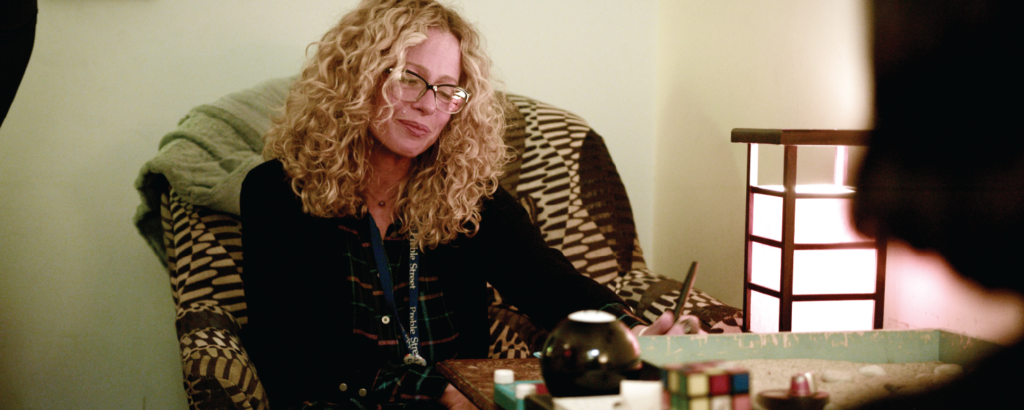United for Mental Health
We’ve all been through it: being a teenager is tough. But teenagers today are navigating an increasingly challenging world, due to the influences of social media, access to substances, and the lingering effects of the COVID-19 pandemic. 36% of high school students in Southern Maine report signs of depression. Connecting teens with mental health, substance use prevention, treatment resources can give them tools for navigating those challenges—tools that they can draw on their whole lives.
When teenagers are unhoused, those problems are magnified. As clinicians with the Day One Street Program, Cheryl Daly and Annie Akers provide low-barrier outreach and mental health and substance use counseling to unhoused youth at the Preble Street Teen Center. The teens they serve come from varied backgrounds, including experience with intergenerational poverty, the foster care system, the judicial system, or have come to Maine as a refugee or asylum seeker.
“Sometimes this is the safest place they’ve ever been.” – Cheryl Daly, Clinician, Day One
For many of these teens, talking about mental health isn’t easy. “There is a level of shame where, you know, you don’t talk about your mental health. Mental health isn’t necessarily considered a real thing,” says Cheryl.
“Our ability to just be present — and you can’t bill insurance for being present — And then when you are present and available, that might be the one day that they say they’re ready. And United Way helps make that possible.” – Stephanie Coreau, Chief Clinical Officer, Day One
It can take time before the teens feel ready to have formal counseling sessions with Cheryl and Annie. Support from United Way of Southern Maine allows Cheryl and Annie to spend hours with teens playing games, or getting coffee, or simply being available and present. Once they develop trust, the teens feel more comfortable seeking counseling services. Those hours spent simply being present cannot be billed to any insurance company, but they are essential, and they are only possible thanks to contributions from donors like you.
